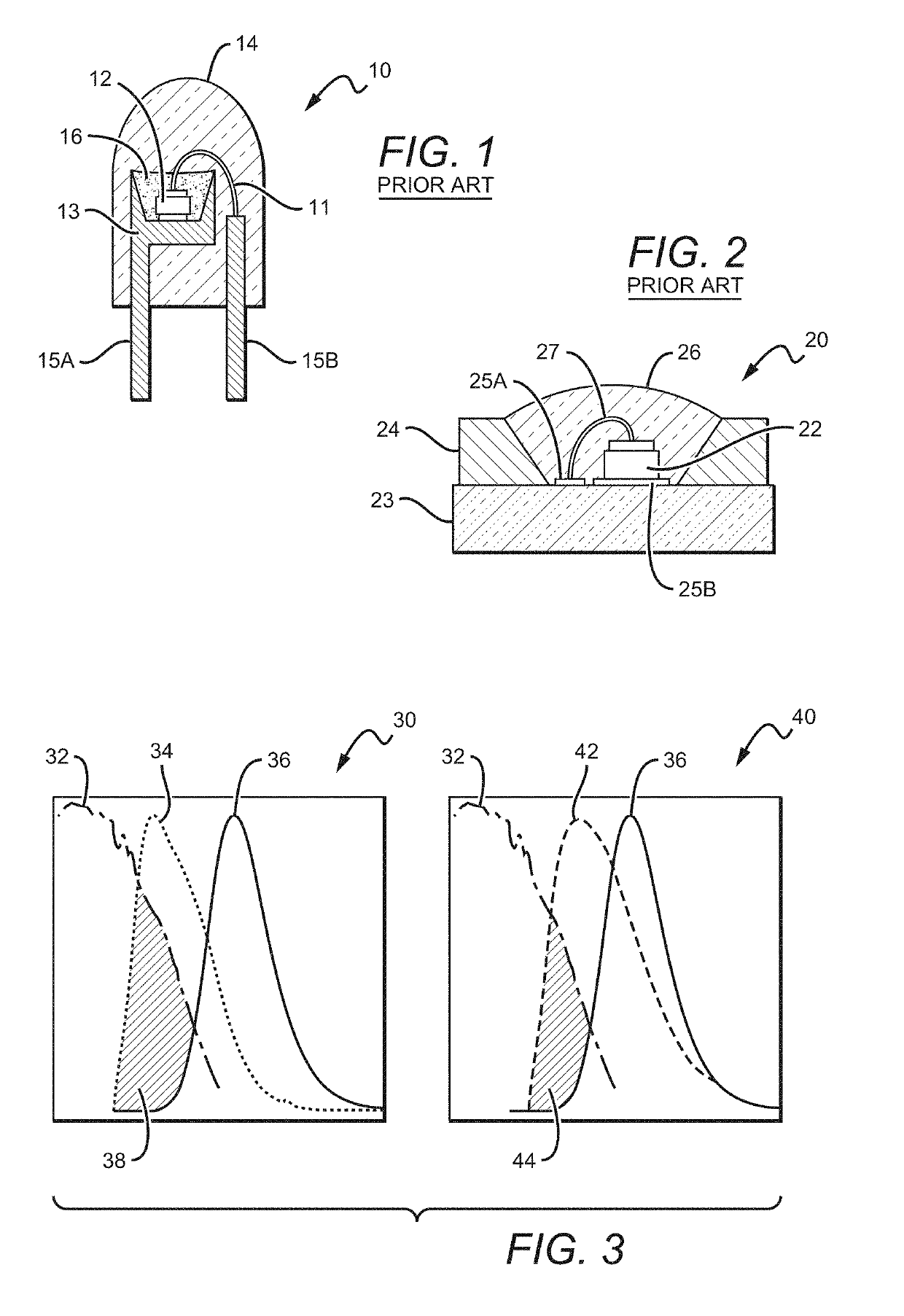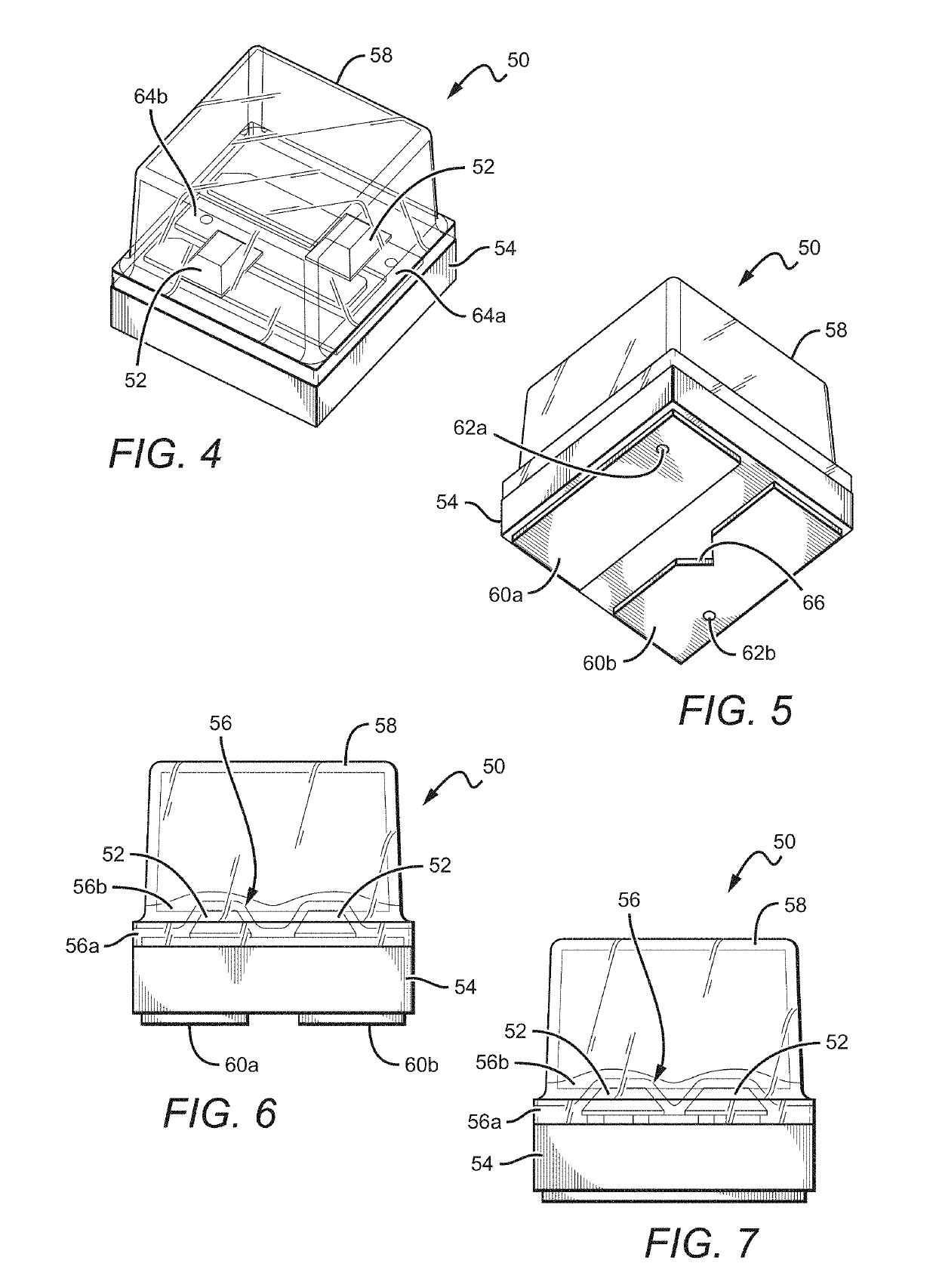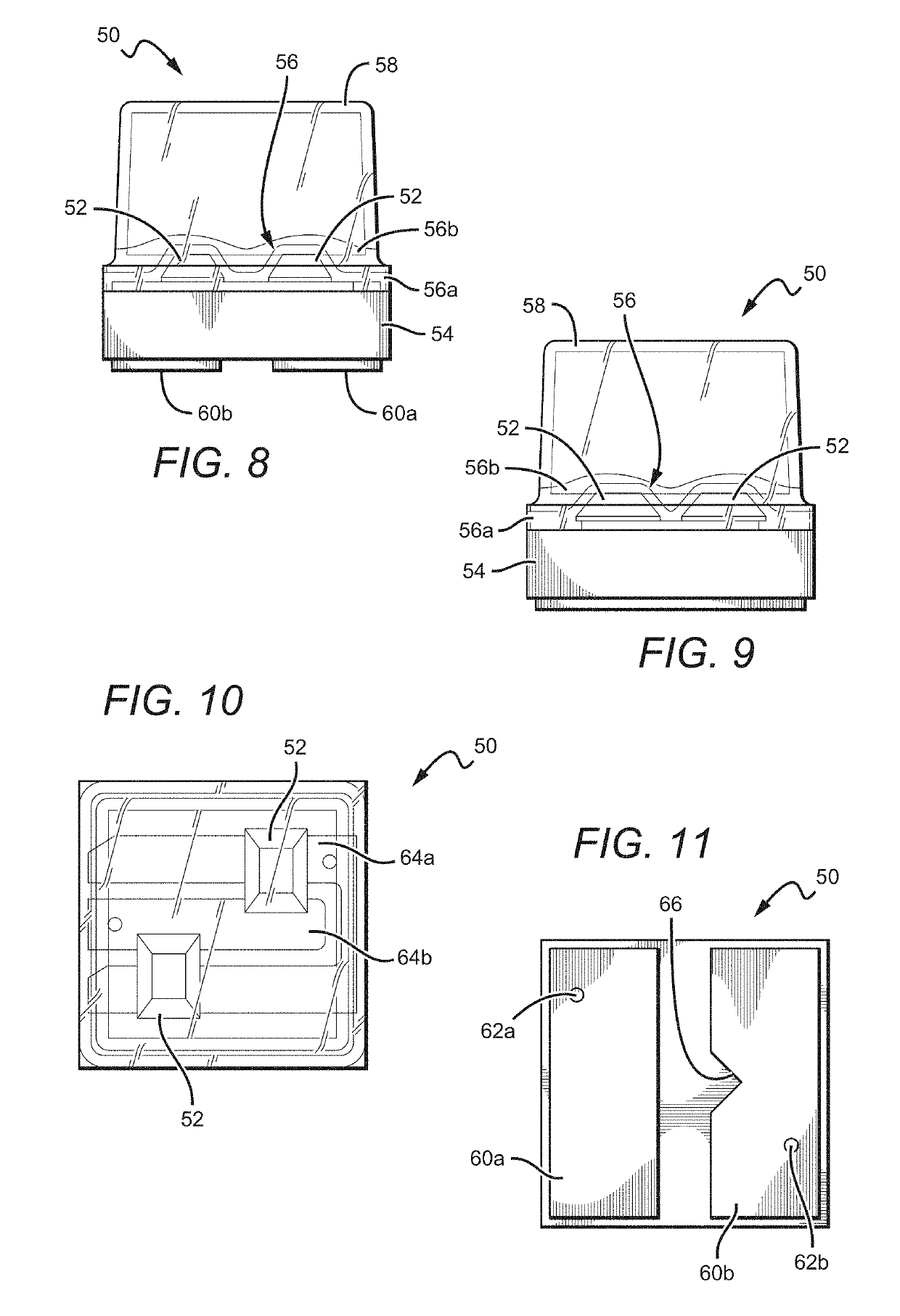Multi-layer conversion material for down conversion in solid state lighting
a conversion material and solid-state lighting technology, applied in the field of solid-state light sources, can solve the problems of high-efficiency light sources, pollution of the environment, and loss of as much as 95% of input energy, and achieve the effects of reducing the amount of costly conversion materials, improving emission intensity and color rendering index, and improving the quality of leds
- Summary
- Abstract
- Description
- Claims
- Application Information
AI Technical Summary
Benefits of technology
Problems solved by technology
Method used
Image
Examples
Embodiment Construction
[0043]The present invention is directed to solid state emitters, such as light emitting diodes (LED or LEDs) that utilize multiple conversion materials or phosphor types in the conversion process in order to achieve the desired emission color point. Different embodiments of the present invention can apply the different phosphor types in separate layers on, above or around one or a plurality of LED chips to achieve the desired light down conversion. The LEDs can then emit a desired combination of light from the LED chips and conversion material, such as a white light combination.
[0044]In some embodiments, one or more of the phosphor layer can be a relatively thin conformal layer having a substantially uniform phosphor particle density. In other embodiments, a phosphor layer may be provided that comprises phosphor particles that are nonuniformly dispersed therein. In some embodiments the layers can have a phosphor-free regions in different locations, such as at the exterior surfaces o...
PUM
| Property | Measurement | Unit |
|---|---|---|
| thickness | aaaaa | aaaaa |
| thickness | aaaaa | aaaaa |
| peak wavelength | aaaaa | aaaaa |
Abstract
Description
Claims
Application Information
 Login to View More
Login to View More - R&D
- Intellectual Property
- Life Sciences
- Materials
- Tech Scout
- Unparalleled Data Quality
- Higher Quality Content
- 60% Fewer Hallucinations
Browse by: Latest US Patents, China's latest patents, Technical Efficacy Thesaurus, Application Domain, Technology Topic, Popular Technical Reports.
© 2025 PatSnap. All rights reserved.Legal|Privacy policy|Modern Slavery Act Transparency Statement|Sitemap|About US| Contact US: help@patsnap.com



